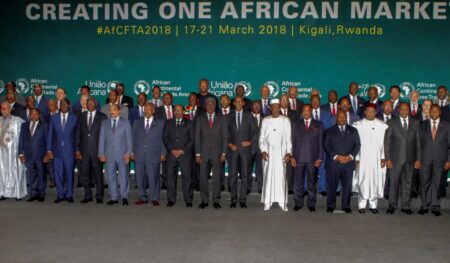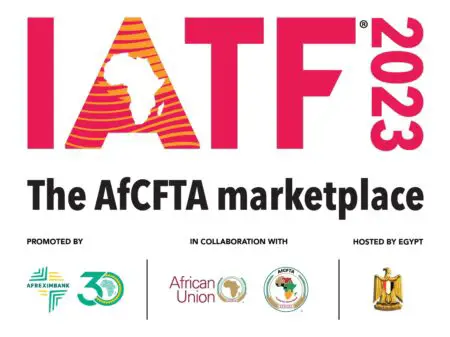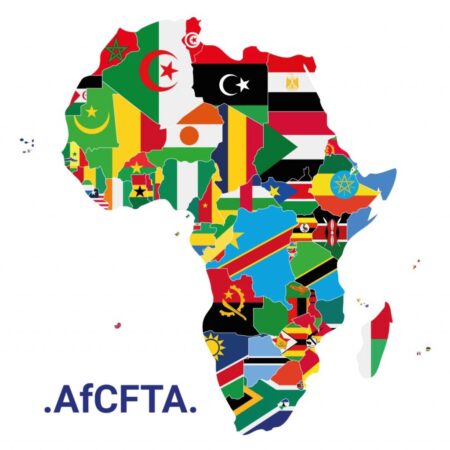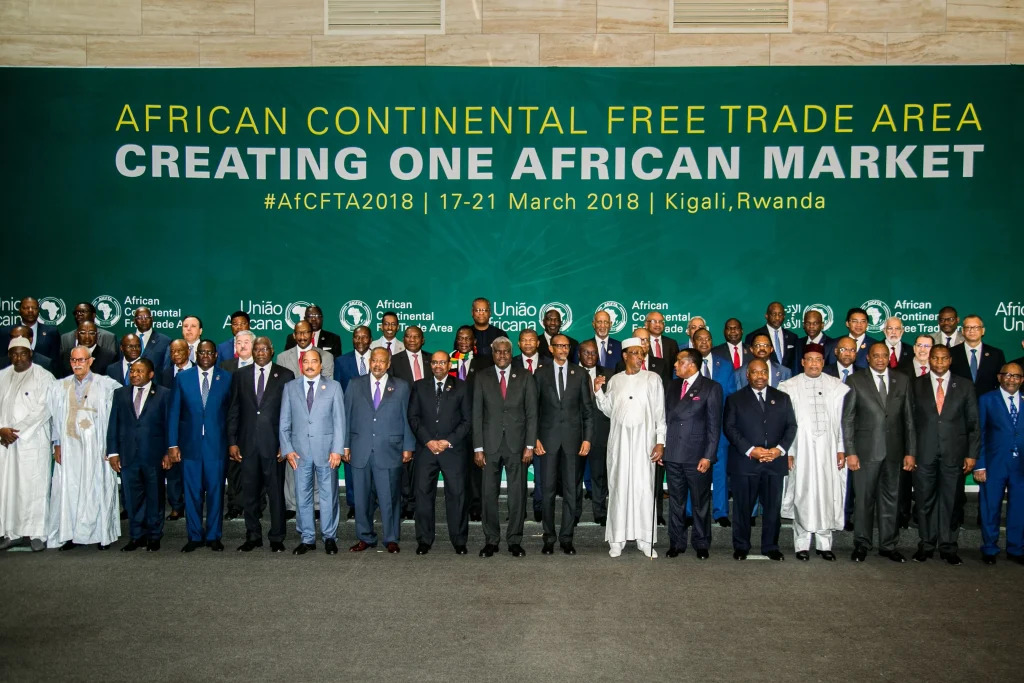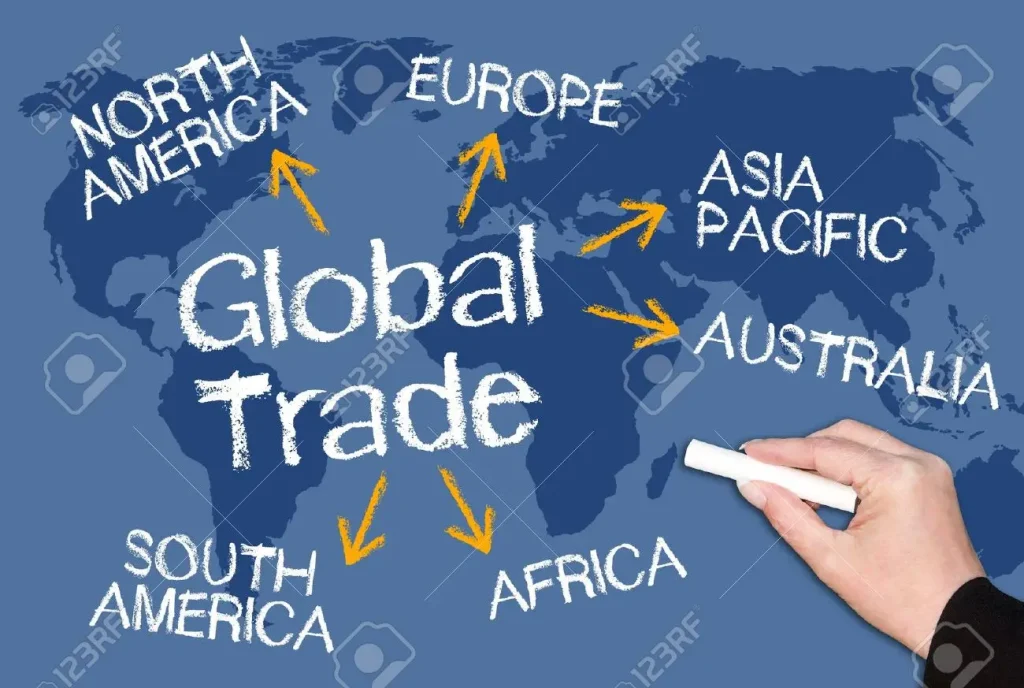- How transition finance can catalyse Africa’s green industrial revolution
- Stanbic PMI Report: Mixed performance as Kenya’s agriculture, construction offset manufacturing decline
- Uganda’s land management gets a tech makeover to boost transparency
- Nigeria’s output dips fastest in 19 months on a sharp rise in costs
- Apple faces growing backlash over Congo exploitation
- Why East Africa is staring at higher wheat prices in 2025
- Nairobi Gate SEZ pumps $7 million into Kenya’s agro-processing industry
- What impact will the US election have on Africa?
Browsing: Intra-African trade
- Every so often, Africa is being forced to choose sides between China, Russia, and the West.
- However, to win big, Africa must speak in one voice and trade as a unit in the new world order
- What’s more, Africa’s vas resource endowments can strengthen the continent’s resilience of its Transatlantic Alliance.
From friend-shoring brought about by COVID-19, then the Russia-Ukraine war, and now escalations in conflict in the Gaza strip, a new world order is taking shape, and Africa must align itself.
The big question for Africa is who to ally with and who to forego. Alignments with China are almost unavoidable, yet they place African economies at loggerheads with the West. While support for Israel pays off, it turns African countries into easy targets for the increasingly complex terror networks taking root on the continent.
Then there is the need to diversify sources of food and fertilizer imports, and …
- About 130 countries participated in IATF2023, which attracted 1,939 exhibitors and 28,282 participants who attended physically and through the IATF virtual platform.
- The sheer scale of IATF2023 reflects a shared commitment to fostering economic integration and development on the continent.
- The next edition of the IATF will be hosted in 2025 by Algeria.
The African Export-Import Bank (Afreximbank) has announced that the third Intra-African Trade Fair (IATF2023) held in Cairo from 9 to 15 November witnessed the conclusion of business deals and transactions valued at US$43.8 billion.
IATF2023 brought together representatives from 130 countries, fostering collaboration and partnership in diverse sectors. With 1,939 exhibitors and 28,282 participants attending physically and through the IATF virtual platform, the trade fair emerged as a pivotal platform for connecting businesses across borders.
In a comprehensive breakdown, the organisers revealed that the concluded deals spanned 21 sectors and involved 52 countries. This extensive …
The African Continental Free Trade Area (AfCFTA) is now widely touted as the African Union’s (AU) most audacious project. The framework ties together the most significant number of member countries of any trade agreement since the World Trade Organisation (WTO) in 1995.
The AfCFTA had become topical even before its formal launch. Members of the business community eagerly awaited the full implementation of the AfCFTA. But two years since its formal launch, how far has the AfCFTA ushered in the ‘new era’ of African integration it promised?…
There appears to be a consensus that the world is finally turning its back on the US dollar. There are simmering shifts within the global monetary system. The shift becomes ever more apparent, best described as de-dollarisation.
The world is searching for alternatives to the US dollar, finding them more often. Thus, moving away from the dollar can no longer be stopped. For instance, early this year, Indonesia reiterated it would promote local currency settlement (LCS) in cross-border trade and investment to reduce dependence on the US dollar.…
Should a common currency in the EAC come to fruition, the trade will be fueled by a reduction, albeit limited, in transaction costs, the elimination of exchange rate risk and region-wide price harmonisation – all of which will undoubtedly be underpinned by policy incentives.
- Monetary Union is the third stage towards EAC regional integration, capped through Political Federation.
- Considering individual economies are relatively small, currency harmonisation might play a significant role in improving intra-African trade.
- The IMF, through its chief Christine Lagarde, previously warned the EAC not to rush into a currency union, pointing to the issues faced in Europe.
Interest in regional integration, including monetary, in Africa has remained intense over the decades since independence. Consequently, various regional groupings have been formed. Those initiatives were stimulated by the generally small size of individual economies. This led to a desire to promote economies of scale in production and distribution. A…
It is critical to strengthen a professional, independent supervision secretariat to make the AfCFTA agreement's promise a reality. A strong secretariat can assist states in developing strong domestic institutions to administer, monitor, and enforce the AfCFTA. The moment for change has arrived. The conventional development models have failed Africa. The AfCFTA, on the other hand, signifies that Africa is open for business.…
[elementor-template id="94265"]
Nations launched the AfCFTA as one of the actions made to support more extensive intra-African trade. The AfCFTA aspires to establish a unified continental market for goods and services. The agreement seeks to harmonise the continent’s various trade liberalization procedures and promote regional integration. Each African nation is a member of at least one of the continent’s approximately 30 bilateral or regional trade agreements.
Africa suffers from marginalization in the global trade system. Nevertheless, the African Regional Trade Agreements heralded a new age of economic integration with significant trade creation impacts. The path to free trade poses several significant obstacles and concerns that African governments must solve.…
[elementor-template id="94265"]
The African continent takes pride in its rich natural resources. The continent boasts of a wide range of minerals, oil, gas, and wildlife among many other commodities. Most African economies are heavily dependent on these resources. Revenue for most is mainly commodity-driven for example, Botswana’s diamonds make up 90% of the country's total exports. In Nigeria, oil accounts for more than 80% of exports and Zambia is reliant on its copper mines for 70% of its exports.
In the majority of cases, African countries are net exporters of the raw commodity making them more vulnerable to the price shocks and changes in demand. Facilitating trade within Africa may be the roadmap to unlocking Africa’s economic potential.
Also Read: All eyes on EAC border points as massive delays bite | KenTrade
Two of Africa’s largest trading partners, the US and China, have been dueling for world economic dominance. There
Africa remains one of the regions with the greatest growth potential in the world with African organisations focusing their growth strategies beyond borders. With these growth strategies come complex new risks which demand sophisticated cross-border insurance solutions. Doing business between different African countries means that all involved need comprehensive cross-border insurance, as this can protect operations by covering all potential risks that may arise between different legal frameworks. DLA Piper’s Luc Bigel and Hamza Akli share insight on Africa’s challenges in this regard and how to structure an efficient, cost-effective insurance programme for cross border risks.
What are the main challenges to trade in Africa, particularly with regard to potential business loss?
We believe there are two main challenges, depending on the situation in which the investor or partner finds themselves. The first is that of solvency. Indeed, in many African countries there is an obligation to use local players …





